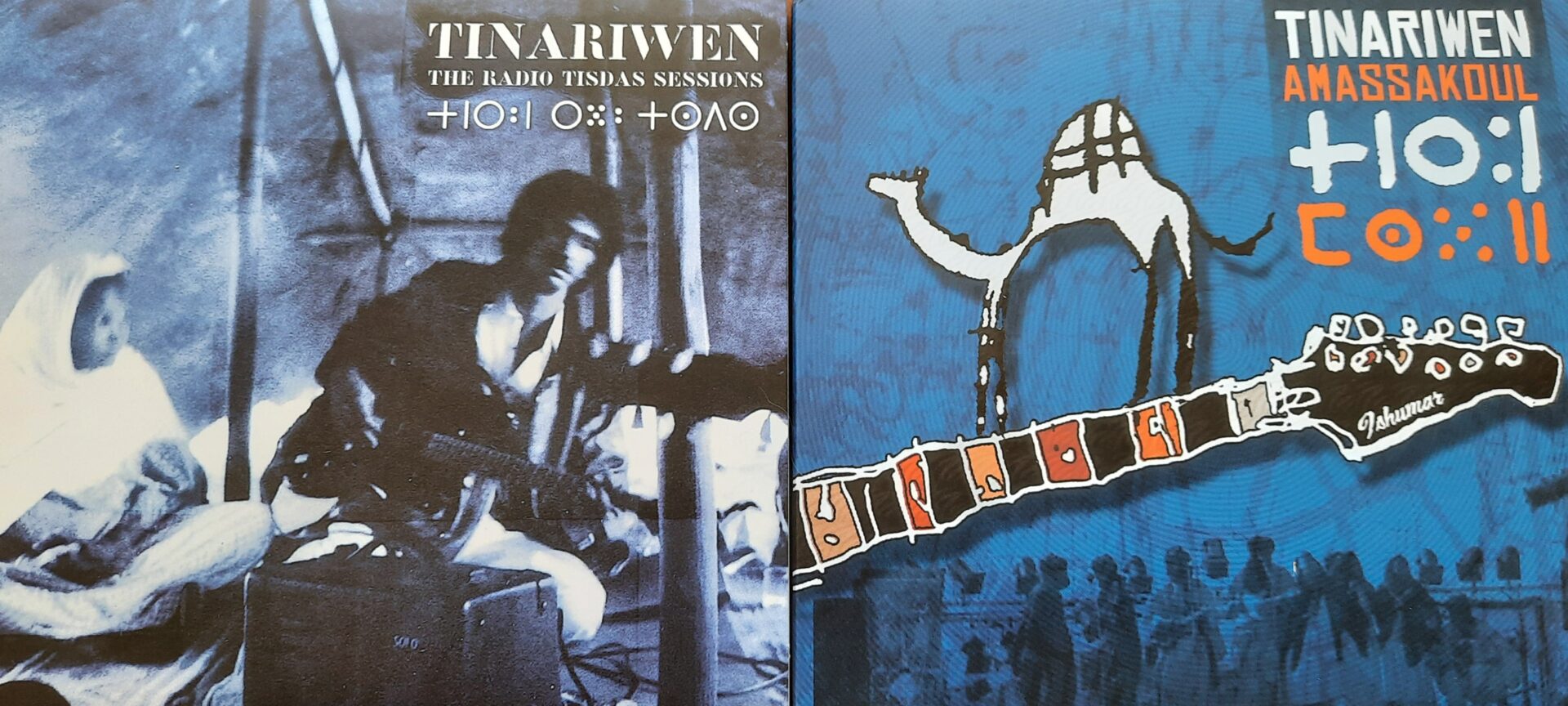Is it really more than 20 years since the much-lauded Touareg collective Tinariwen released their first album? My jaw hit the floor when this fact dawned on me. More importantly though, so did my feet. Now, it would be disingenuous of me to claim I was aware of the band back in 2001 when The Radio Tisdas Sessions came out, but 2004’s Amassakoul made a huge impact. It is, quite emphatically, impossible to stop yourself from dancing to. With nothing but joy in your heart. And because I am more familiar with that record, I am going to take the unusual stance of dealing with the second album before commenting on the debut.
Amassakoul is pure elation for much of its duration, but the blissful ecstasy exuding from your turntable masks the turmoil and suffering of the indigenous peoples of the Sahara desert. One innovative idea that gives you some idea of those hardships is the fact that the lyrics to each song are reproduced here in both English and French, though the songs are sung largely in their native tongue of Tamashek. So instead of having to just soak in the highly atmospheric Malian desert blues with no idea what’s being said, we can glance at the booklet and see lines like “It’s the poison in your blood/But you keep on carrying your silent suffering on your back/Don’t hide it any longer,” from ‘Oualahila Ar Tesninam‘ (‘Oh My God, You’re Unhappy‘) or “Under my skin is the fire of rage/And anger shouted out at the gathering of my brothers/Suffering for far too long and in misery,” from ‘Chatma‘ (‘My Sisters‘) or “I’m tired of searching for that which is not,” from ‘Aldhechen Manin‘ (‘Tired, I’m Tired‘).
The pain is real. But the effortless flow of the music seems to act as a kind of tonic, a placebo even, for all brothers and sisters to rise up and use these songs as a rallying cry to get them through the days. It’s not just a great album, it’s a vital one.
Its predecessor, The Radio Tisdas Sessions, starts out less intense by comparison, opening track ‘Le Chant Des Fauves‘ (‘Song Of The Wild Beasts‘) possessing a warm timbre like a group singing around a campfire. Don’t be under any illusions though, that these lazy, hazy sunshine smiles are in any way devoid of Amassakoul‘s socio-political nature. Far from it. Just pay attention, once again, to the translation of the lyrics here. The latter contains the line “Don’t think that we lack respect for our elders/Ignorant though they are/They have no education/Yet they’re supposed to educate the youth,” whereas ‘Kedou Kedou‘ insists “There are those who flee/And those who destroy/Why should the dead continue to suffer in their tomb?”
These are incredibly emotive, carefully considered works of art that come straight from the heart and are filled with soul. It’s just that The Radio Tisdas Sessions, on face value, seems to have a slightly darker heart than Amassakoul, when in actual fact, ideologically the two albums are more perfect as bedfellows than you might initially think.
As Andy Morgan’s sleevenotes point out on Tisdas, during times of great oppression for young Touaregs, “Tinariwen were there. Their music was the soundtrack of the uprising. They went into battle with a Kalashnikov in their hands and a guitar on their back. They knew loss, disappearance, torture and longing.”
Back in 1991, Manic Street Preachers‘ then guitarist Richey Edwards carved the words ‘4 Real’ into his own arm during a discussion with Steve Lamacq to prove his commitment to his band’s cause. Tinariwen certainly do not need to take such drastic action to verify their own worth. They are most definitely the real deal, and these two albums are absolutely testament to that.




